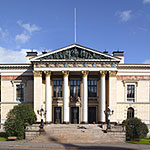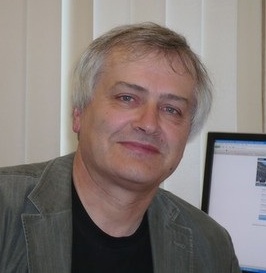Abstract:
Simple models of the earth's energy balance have proved to provide
some interpretation of qualitative aspects of the dynamics of paleoclimatic
time series. In the 1980s this led to the investigation of periodically
forced dynamical systems of the reaction-diffusion type with
small Gaussian noise, and a rough explanation of glacial cycles by
Gaussian noise induced transitions. A spectral analysis of Greenland
ice time series performed at the end of the 1990s representing average
temperatures during the last ice age suggest a non-Gaussian jump noise
component with a fractal index α ∼ 1.75 (α-stable noise). Based on
this observation, papers in the physics literature attempted an interpretation
featuring dynamical systems perturbed by small Lévy noise.
This leads to a statistical model selection problem. For instance, if
the time series is modeled as a dynamical system perturbed by noise
with fractal index α, one needs an efficient testing method for the best fitting α. We develop a method based on power variations of the solution
trajectories of stochastic differential equations with Lévy noise.
The result of our statistical analysis confirms the empirical 1.75, but
suggests another well fitting index near 0.7.




